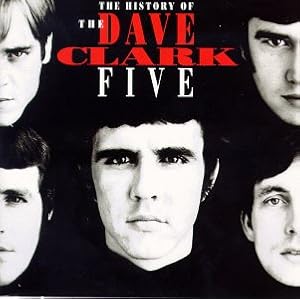 |
| (Photo: Laura Petrecca, USA TODAY) |
Immediately the requests were sounded, “Pray for Newtown.” But what should we pray, exactly? I think the first prayer we pray is something we might not think of as a prayer at all: “O God.” Although “O God” is a reflexive exclamation when we hear bad news, it’s also a form of reaching out to something more powerful than we.
At first we don’t even have words to supplement the “O God.” We sit in stunned silence, our minds reeling, imagining horrors, yearning for more detail, an explanation that will help make sense of it. “O God” hangs in the air---and ascends to God. Romans 8 talks about the Spirit interceding for us “with sighs too deep for words” when we don’t know how to pray. Sighing with the Spirit may be as honest and gentle of a prayer as we can muster.
I found Anne Lamott’s latest book HelpThanks Wow: The Three Essential Prayers to be a wonderful guide to filling in some of the content for my prayers Newtown. She gives us three simple one word prayers that enable deep prayer.
 Help. Lamott claims that’s the prayer that comes from deep
inside when we feel the most broken, when we know that we don’t have the
solutions, that we cannot control very much in this whole world. To pray,
“Help” is to surrender any illusions of control, of security and immunity to
suffering to a power greater than one’s self.
Help. Lamott claims that’s the prayer that comes from deep
inside when we feel the most broken, when we know that we don’t have the
solutions, that we cannot control very much in this whole world. To pray,
“Help” is to surrender any illusions of control, of security and immunity to
suffering to a power greater than one’s self.So, we pray: Help. Help God.
- Help the moms and dads, brothers and sisters, grandparents, aunts, uncles and friends who have lost someone precious to them, who will be haunted by this week forever.
- Help them as they endure the site of little caskets and hear the words “earth to earth. . .”
- Help them to get through, help them know your identification with their pain and sorrow. Help them to find what they need and who they need in their darkest moments.
- Help the responders and faculty and parents who have witnessed the awful scene.
- Help our country figure out how to better protect our children and teachers.
- Help us when we don’t feel much like lighting the candle of joy to light it anyway.
- Help us not to become so used to these stories that our hearts become hardened.
- Help us to pay attention and care for all children who suffer from violence and terror and abuse.
Help.
The second great prayer is Thanks. There is sort of the selfish-thanks. Thank you that it didn’t happen to my family, my community. But Anne says thanks also develops gratitude for what awful events can reveal–even if they are unpleasant.
- Thanks that we are reminded of how precious and fragile life really is, and how we take should never take one moment or person in our lives for granted.
- Thanks that we have a moment to pause and figure out how to do better and care for the most vulnerable.
- Thanks that a window may have opened for our nation to have a more mature conversation about a culture of violence and guns and access to mental health services.
- Thanks the opportunity to renew our commitment to be of service, to make the world less volatile by being people who follow the ways of peace, truth and justice, who do not give in to darkness.
Wow is the prayer of paying attention and seeing the good in the world. In spite of the tragic, there are still dimensions of life that take our breath away.
- Wow–it takes our breath away to realize the heroism of the principal and teachers who sacrificed their own lives for the children.
- I see law enforcement officers who rush into the unknown putting themselves in harm’s way. Wow.
- I’m blown away by the care medical examiners and others who do sign up to look at awful things so that the truth might be revealed.
- Wow–even though our hearts are broken, we have a chance to act, to not let the darkness of the world to overwhelm and overtake us.
- Wow–we are amazed at the children that we see at this time of year especially filled with a sense of trust, wonder, and love for life.
- Wow–even though the worst has happened, there is still more good than evil in the world, there is still a chance to push the darkness out of our hearts and embrace the light.

If you are looking for a model to improve your prayer life and earnestly pray for Newtown, three little words feel just about right. Help. Thanks. Wow.





